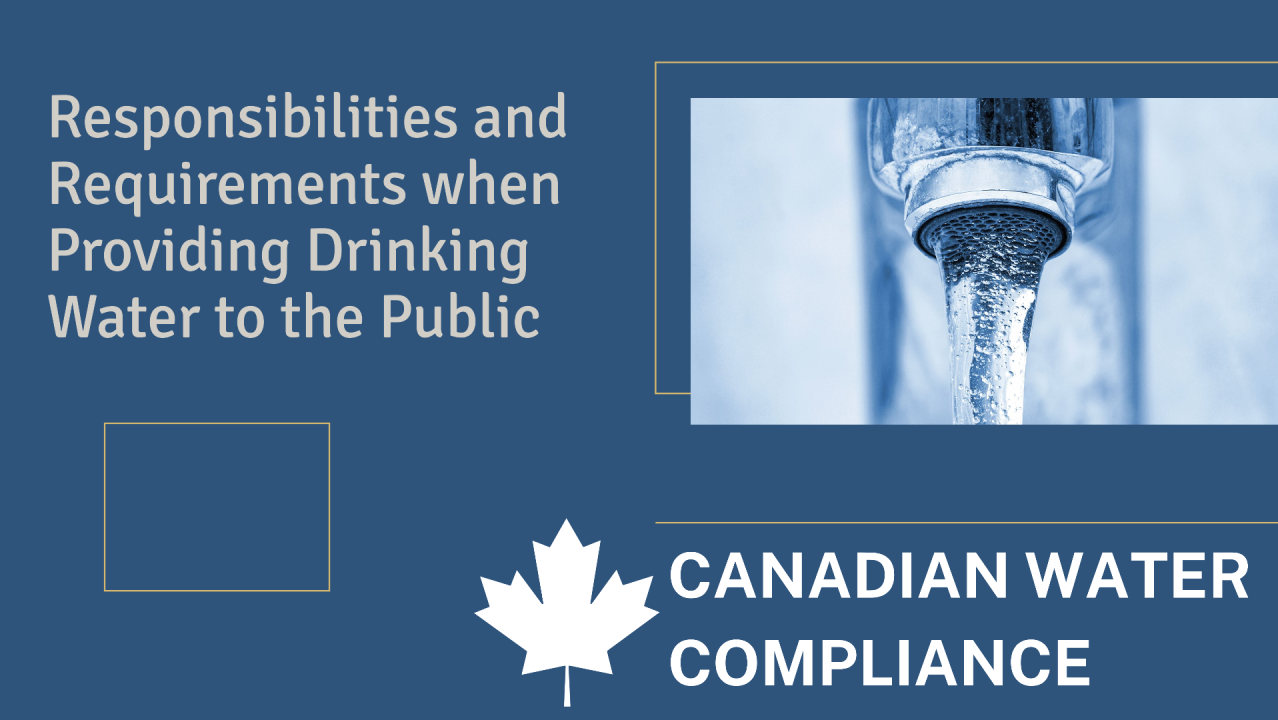
Written By: Canadian Water Compliance | On
As a water safety and testing specialist with extensive knowledge of the Canadian Safe Drinking Water Act and the Ontario Clean Water Act, I emphasize the critical importance of providing safe and potable water. Whether managing an office tower, condominium, or hotel, ensuring that the water you offer is safe for consumption is a legal obligation and a cornerstone of public health. This article outlines what potable water is, your responsibilities when offering drinkable water, and the regulatory requirements for water testing, including the frequency at which these tests should be conducted.
Definition: Potable water is water safe for human consumption, free from harmful contaminants, pathogens, and substances that could pose health risks. In Canada, potable water must meet Health Canada’s Guidelines for Canadian Drinking Water Quality, among the most stringent globally. Importance: Providing potable water is crucial for public health. Contaminated water can lead to serious health issues, including gastrointestinal illnesses and neurological disorders. For businesses, offering potable water is a legal requirement and essential for the safety and well-being of employees, customers, and residents.
Legal Obligations: Under the Canadian Safe Drinking Water Act and the Ontario Clean Water Act, businesses must ensure their water meets potable water standards. This applies to office towers, condominiums, hotels, restaurants, and public facilities.
Regular Monitoring and Testing: Property managers must regularly test water for contaminants and maintain records of all tests and corrective actions.
Preventative Maintenance: Regular maintenance of water systems, including pipes and filters, is necessary to prevent contamination.
Compliance with Standards: Follow the Guidelines for Canadian Drinking Water Quality and Ontario Regulation 170/03 for water quality standards.
Frequency of Testing: Testing frequency varies by business type and water system size. Large systems require daily tests, while smaller systems may need monthly or annual tests.
Reporting and Documentation: Test results must be reported to regulatory bodies like Ontario’s Ministry of the Environment, Conservation and Parks.
Emergency Response: Businesses should have an emergency response plan for water contamination issues.
Ensuring the provision of safe, potable water is a fundamental responsibility for businesses, especially in hospitality and property management sectors. Compliance with Canadian water laws is crucial for public health and maintaining trust. Regular testing, maintenance, and adherence to regulations are essential for ensuring water safety and quality.